Vía Orgánica Farm School
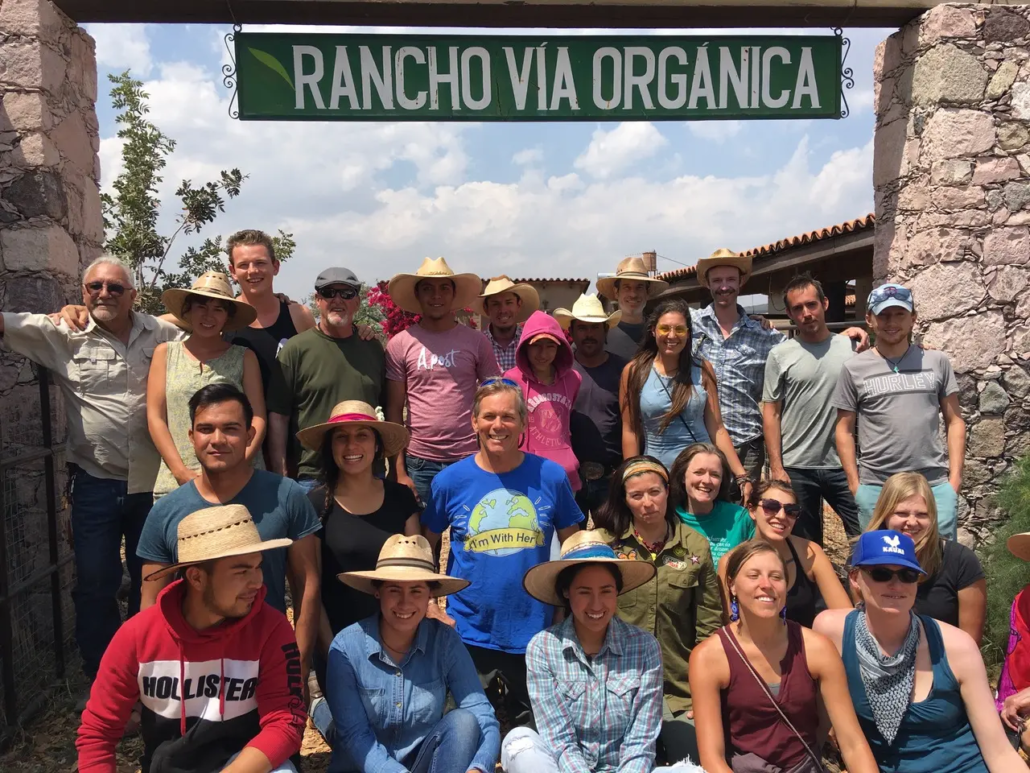
We welcome the year 2024. We begin with all the enthusiasm and energy to share and exchange experiences about the regenerative agriculture movement and to keep working for an environmental culture.
The essence of this project is to promote awareness of taking care of the planet, through different actions, among them, the experiences generated with our products and services from the Farm School.
Have you ever wondered how many times you have been in an ecological farm in action? Well, now is the time to do it!
Eco-tourism
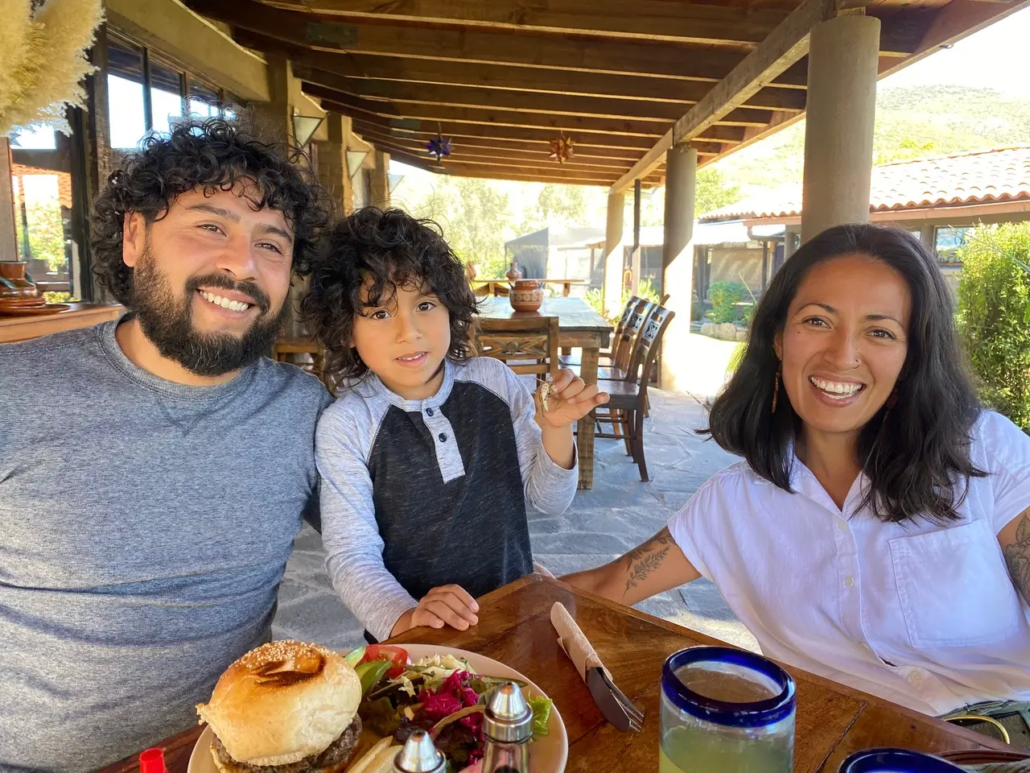
Vía Orgánica’s agro-ecological park offers unique and memorable experiences. Enjoy a peaceful stay in the Jalpa Valley, the rustic cabins, which have been built on the ranch itself with adobe, a material that is made out of a mixture of clay soil and fibers, resulting in a compressed block of clay, which produces thermal constructions, allowing to cool down inside in the hot season and keeps it warm inside during the cold season. All the roofs of the buildings collect rainwater that is stored and used for irrigation and vegetable production; we also have solar energy and gray water filters. Our toilets are ecological, to avoid the use of water and compost waste.
Upon arrival at the ranch you will visit the different stations and areas to learn about the ecological management of plants, animals, forest areas, among others.
You will be able to enjoy a range of different dishes, made with local, seasonal ingredients, fresh salads and meals produced in a natural and regenerative way.
You can finish your experience watching a beautiful sunset from the lookout point, a quiet space at the top of the ranch with an incredible view. You can request a bonfire and bring a musical instrument.
Eco-Friendly Things to-do at the Farm School
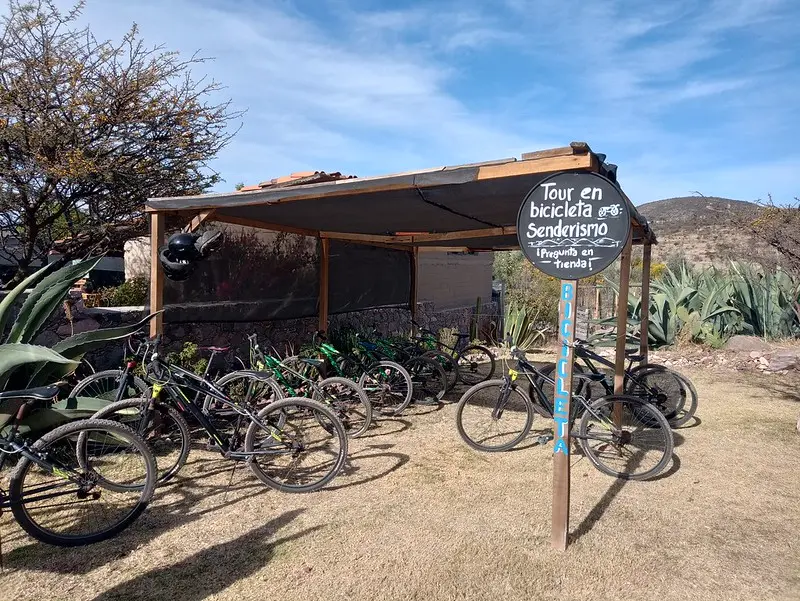
In addition, you can rent a bicycle, take a ranger tour or walk along our hiking trail in the mountains; there is always plenty to do, no matter the season of the year.
As if that were not enough, you can attend the workshops offered throughout the year with diverse and very interesting topics such as: design and planning of your garden, composting, traditional cooking, ecological management of animals, medicinal plants, maguey breaking. It is important to tell you that we have activities for the whole family, school groups and fun activities for girls and boys.
Put together your custom package, enjoy and learn, be part of this movement and help us to promote tourism with integral and sustainable impact. Visit page here
Infographics
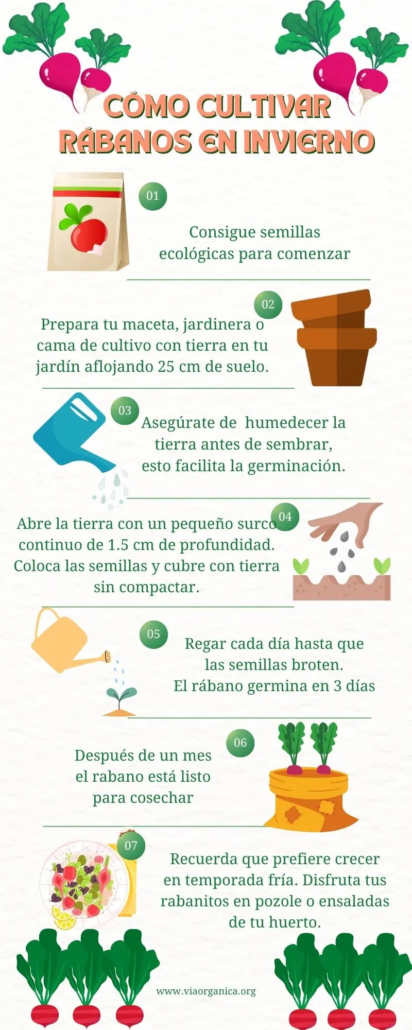
Seasonal Crops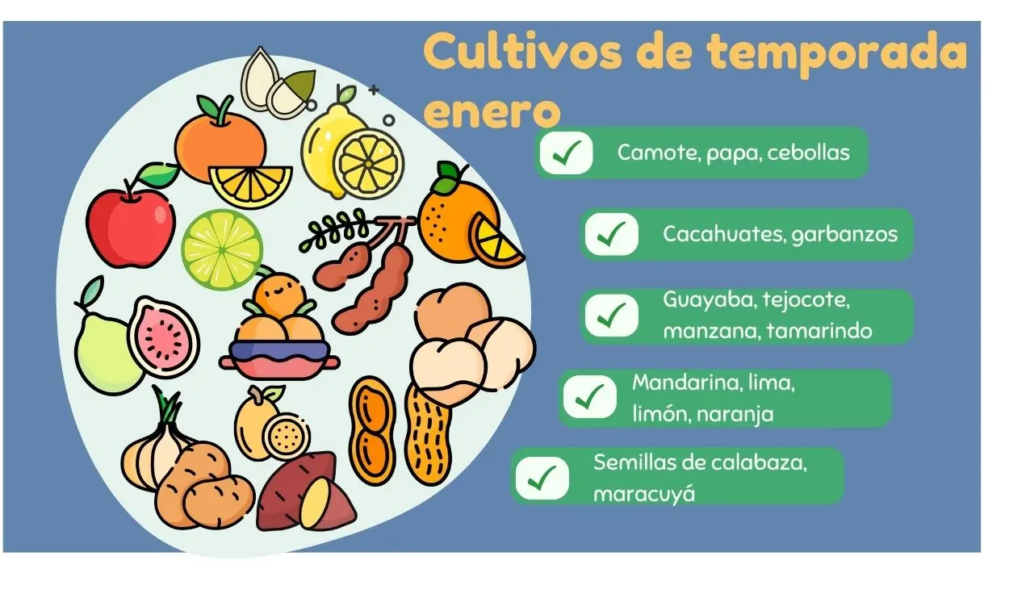
Recipe of the Month
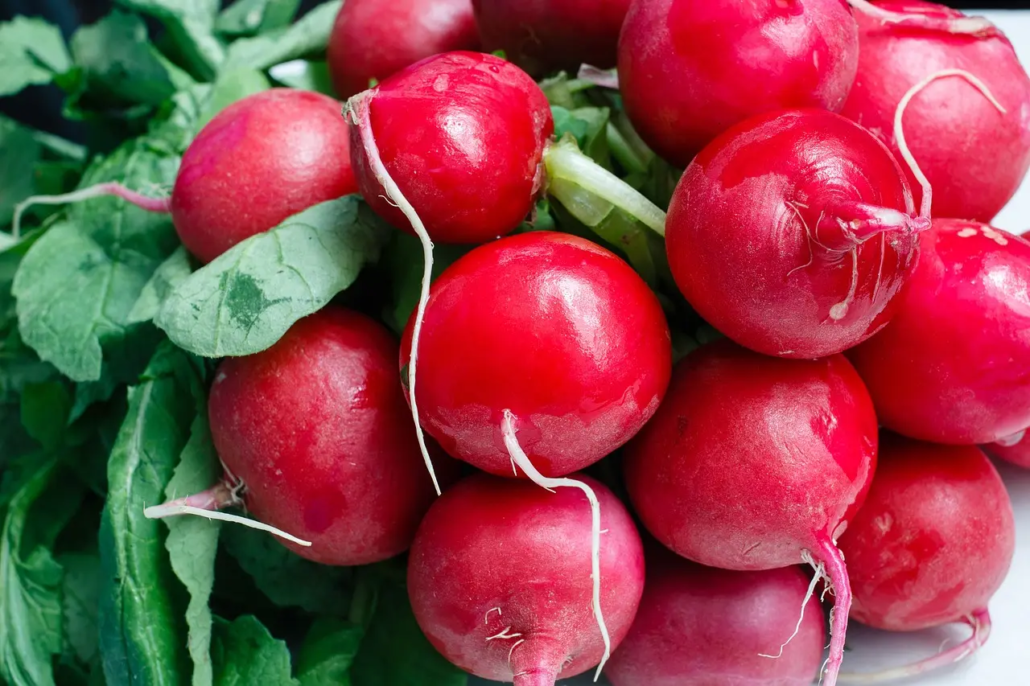
Rosemary Roasted Radishes
Ingredients (Serves 4)
Radishes 300 g
Garlic cloves 2
Fresh rosemary 2
Lemon 1
White wine 50 ml
Extra virgin olive oil
Ground black pepper
Salt
How to make rosemary roasted radishes. Difficulty: Easy
Preheat the oven to 200ºC and prepare a dish or tray. Wash the radishes well, removing the remains of soil and possible damaged parts, and cut the stalk -although the small leaves are edible-. Cut in quarters or in half, if they are small.
Place them in the dish and season with salt and pepper. Drizzle with a splash of good quality extra virgin olive oil, lemon zest and a little wine or white vermouth. Add the rosemary -we can use a couple of spoonfuls of dried rosemary- and season with salt and pepper, adding the unpeeled garlic cloves.
Bake for about 25-30 minutes, stirring the pan halfway through and adding a little more wine, if desired. Keep an eye on them towards the end of the cooking time and remove them when they are ready.
Meet the Animals from the Farm School
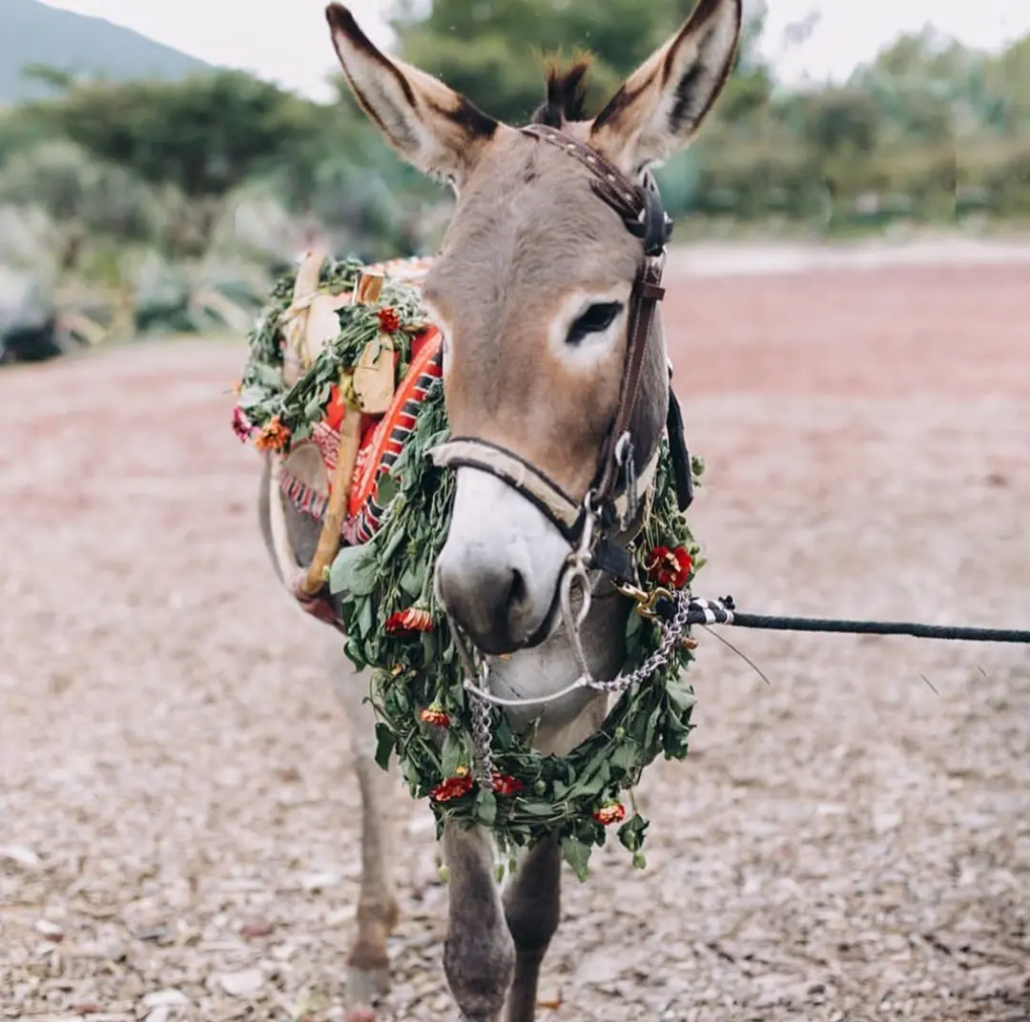
Tequila
This friendly and curious donkey is the oldest on the ranch, she has been with us since our beginnings, always showing her face to greet visitors and get a carrot. She also likes getting into mischief, like one time she tried to escape from a walk and lay down under a tree to avoid working. Thanks to her contribution of manure, many adobes and compost have been made. Meet Tequila on your next visit to the ranch by following the signs on the trails.
Next Workshops
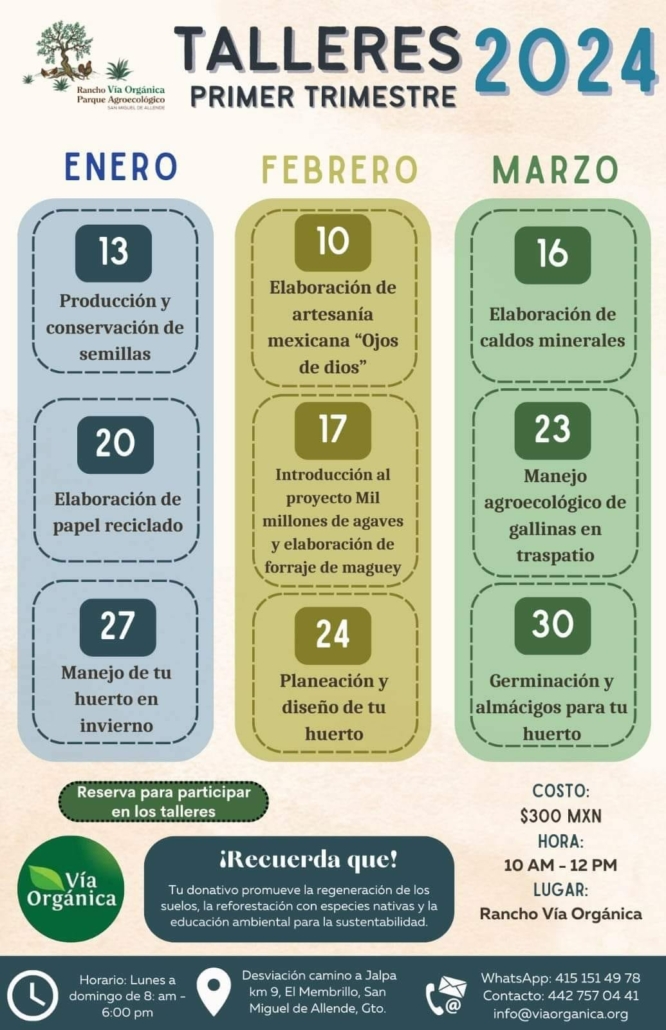
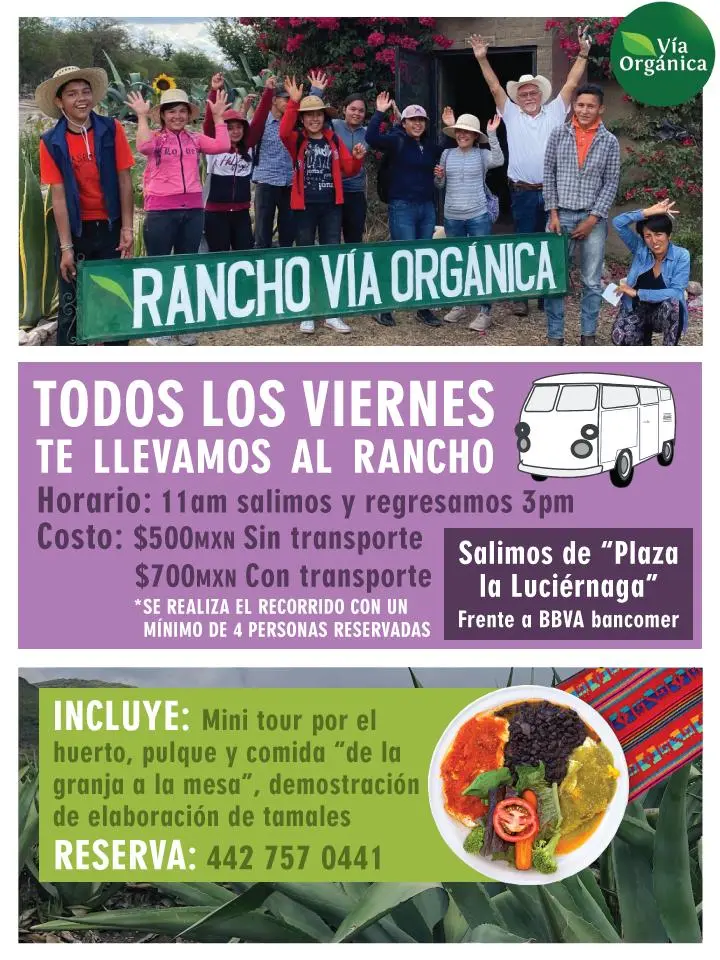 EVERY FRIDAY WE TAKE YOU TO THE VÍA ORGÁNICA RANCH!
EVERY FRIDAY WE TAKE YOU TO THE VÍA ORGÁNICA RANCH!
Includes transportation, lunch, mini tour of the garden and tamale making demonstration.
RESERVE ON THE FOLLOWING PHONES:
Office: 44 2757 0441
Whatsapp: 41 5151 4978
DON’T FORGET TO VISIT US!
Remember that we are open from 8 am to 6 pm
Carretera México/ Querétaro, turnoff to Jalpa, km 9
Agroecological Park Vía Orgánica.
For information on our products, seeds and harvest,
call our store at 442 757 0490.
Every Saturday and Sunday nixtamalized tortilla with Creole and local corn!
Enjoy our sweet and sour kale chips for children and not so children!
FOLLOW US!
 FACEBOOK
FACEBOOK  TWITTER
TWITTER  INSTAGRAM
INSTAGRAM
SHARE THIS NEWSLETTER!
 Share
Share  Tweet
Tweet  Forward
Forward









 EVERY FRIDAY WE TAKE YOU TO THE VÍA ORGÁNICA RANCH!
EVERY FRIDAY WE TAKE YOU TO THE VÍA ORGÁNICA RANCH!